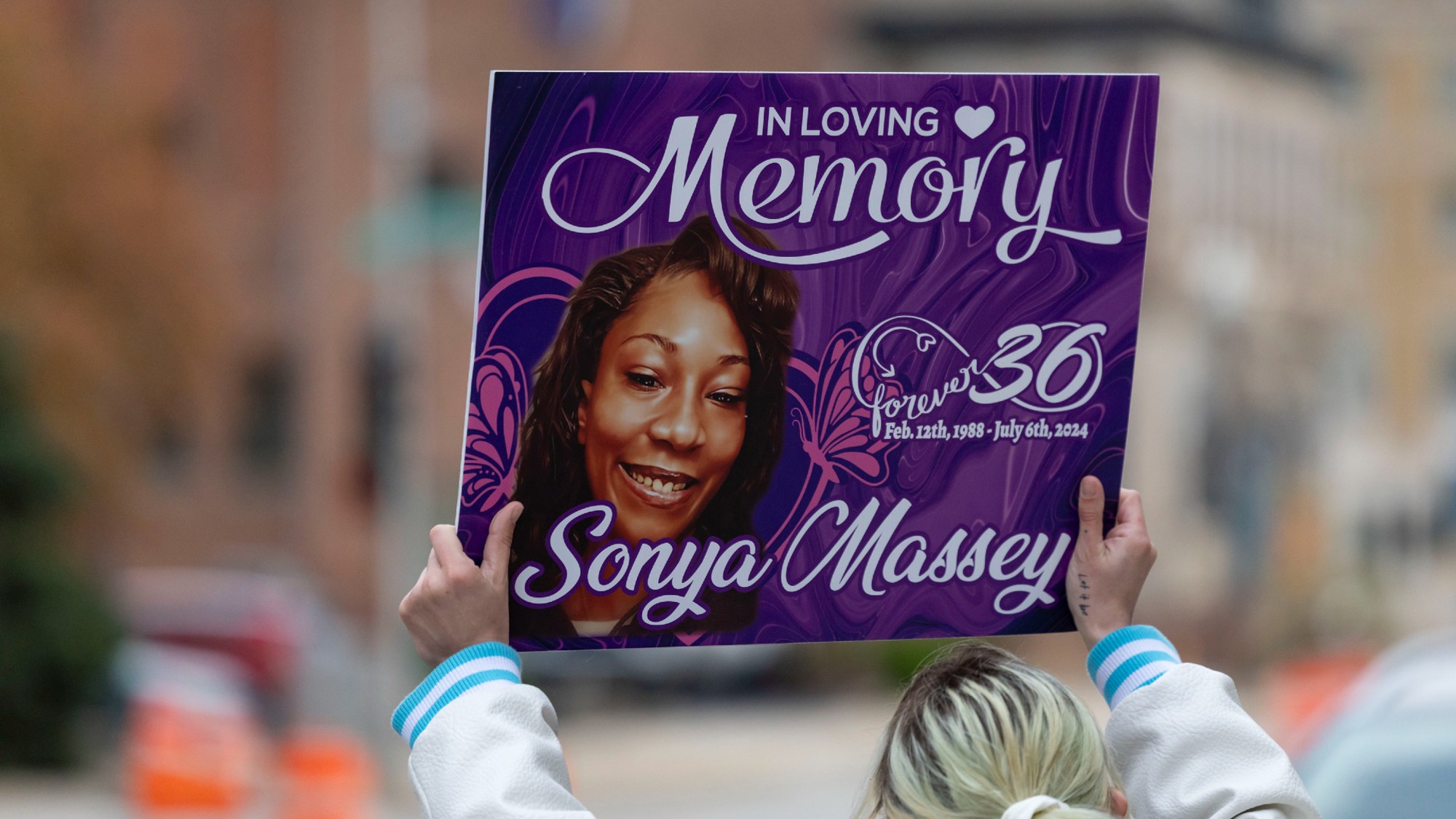Ian Brady: what newly released Home Office files reveal
Moors murderer had access to vulnerable teenagers in Wormwood Scrubs

A free daily email with the biggest news stories of the day – and the best features from TheWeek.com
You are now subscribed
Your newsletter sign-up was successful
Newly released government files show that prison bosses allowed Ian Brady to interact with vulnerable teenagers – even after one so-called borstal boy claimed to have had sex with the child killer.
Brady and his girlfriend Myra Hindley were both sentenced to life in prison over the torture, sexual abuse and murders of five children between 1963 and 1965. They made audio recordings of their victims’ ordeals and buried their remains on Saddleworth Moor.
After the couple were jailed, in 1966, Hindley campaigned for parole, but neither was ever released, despite some high-profile supporters who felt they were treated unfairly. Hindley died in 2002, while Brady lived for another 15 years.
The Week
Escape your echo chamber. Get the facts behind the news, plus analysis from multiple perspectives.

Sign up for The Week's Free Newsletters
From our morning news briefing to a weekly Good News Newsletter, get the best of The Week delivered directly to your inbox.
From our morning news briefing to a weekly Good News Newsletter, get the best of The Week delivered directly to your inbox.
What do the newly released files show?
The Home Office has released documents, seen by the BBC, which reveal that while in prison, Brady was allowed to mix with vulnerable teenagers for a period extending about five years, between 1976 and 1981.
These youngsters, some as young as 15, had been transferred to Feltham Borstal to the Wormwood Scrubs Hospital because they were suffering from mental health problems. But Brady had been placed in a room on the Mental Observation Landing, after going on hunger strike in protest at not being allowed to associate with other inmates.
His privileges were subsequently extended, according to the broadcaster, which reports that Brady was “allowed to watch television with other patients and given duties that enabled him to move beyond the landing, cleaning toilets and showers”.
A free daily email with the biggest news stories of the day – and the best features from TheWeek.com
This suggests that he would have had the opportunity to have sex with other prisoners, says Peter Meakings, an assistant governor at the prison at the time. Meakings told the broadcaster: “As the landing cleaner, Brady wouldn’t just have had free run of the passageway outside the rooms, where there were officers supervising, he would also have had access to the toilets.”
As early as 1976, a prison medical officer wrote of Brady: “He takes an unusual interest in any adolescent inmate who may be located on the landing and his influence in such a situation is certainly not a wholesome one.”
The killer’s years of comparative liberty came to an end in the autumn of 1981, when a young borstal boy reported having sex with him. Brady lost his job and its associated privileges and was moved to Parkhurst, on the Isle of Wight, the following year. He was later moved to Ashworth Secure Hospital, where he died at the age of 79.
How did Brady get these privileges?
Brady was considered a psychopath by prison authorities – and just plain evil by many other people who knew him. He exercised whatever power he could over others: it is thought that is why he refused to reveal where he had buried 12-year-old Keith Bennett, the only Moors Murders victim who has never been found, despite repeated pleas from Bennett’s mother.
During his many years in prison, Brady made a series of official complaints about his living conditions, sending letters to the government, meeting with high-profile supporters including Lord Longford, and staging a number of hunger strikes. But he never achieved his ultimate goal – to be allowed conjugal visits with Myra Hindley.
However, Brady did succeed in getting “a degree of special treatment”, says the BBC. Perhaps significantly, alongside the homoerotic novels that he was allowed by one prison governor, he asked for and got a copy of the works of Machiavelli.
-
 Political cartoons for February 19
Political cartoons for February 19Cartoons Thursday’s political cartoons include a suspicious package, a piece of the cake, and more
-
 The Gallivant: style and charm steps from Camber Sands
The Gallivant: style and charm steps from Camber SandsThe Week Recommends Nestled behind the dunes, this luxury hotel is a great place to hunker down and get cosy
-
 The President’s Cake: ‘sweet tragedy’ about a little girl on a baking mission in Iraq
The President’s Cake: ‘sweet tragedy’ about a little girl on a baking mission in IraqThe Week Recommends Charming debut from Hasan Hadi is filled with ‘vivid characters’
-
 Ex-Illinois deputy gets 20 years for Massey murder
Ex-Illinois deputy gets 20 years for Massey murderSpeed Read Sean Grayson was sentenced for the 2024 killing of Sonya Massey
-
 Why have homicide rates reportedly plummeted in the last year?
Why have homicide rates reportedly plummeted in the last year?Today’s Big Question There could be more to the story than politics
-
 How the Bondi massacre unfolded
How the Bondi massacre unfoldedIn Depth Deadly terrorist attack during Hanukkah celebration in Sydney prompts review of Australia’s gun control laws and reckoning over global rise in antisemitism
-
 Australian woman found guilty of mushroom murders
Australian woman found guilty of mushroom murdersspeed read Erin Patterson murdered three of her ex-husband's relatives by serving them toxic death cap mushrooms
-
 Crime: Why murder rates are plummeting
Crime: Why murder rates are plummetingFeature Despite public fears, murder rates have dropped nationwide for the third year in a row
-
 The missed opportunities to save Sara Sharif
The missed opportunities to save Sara SharifTalking Point After each horrific child abuse case, we hear that lessons will be learnt. What is still missing?
-
 Haitian gangs massacre hundreds accused of 'witchcraft'
Haitian gangs massacre hundreds accused of 'witchcraft'Under the Radar Vodou practices blamed for gang leader's son's illness, as elderly are hacked to death in Port au Prince
-
 Penny acquitted in NYC subway choking death
Penny acquitted in NYC subway choking deathSpeed Read Daniel Penny was found not guilty of homicide in the 2023 choking death of Jordan Neely